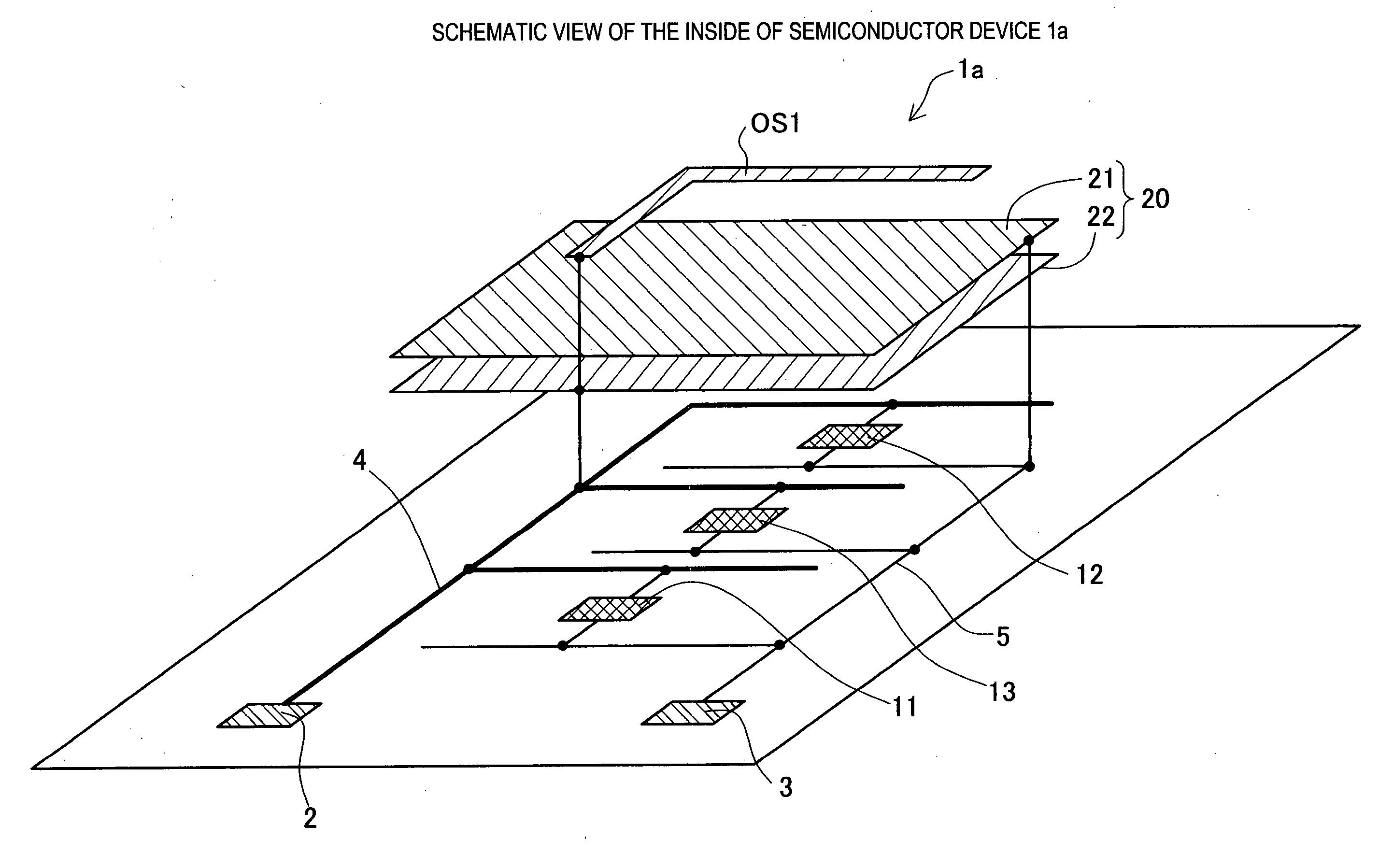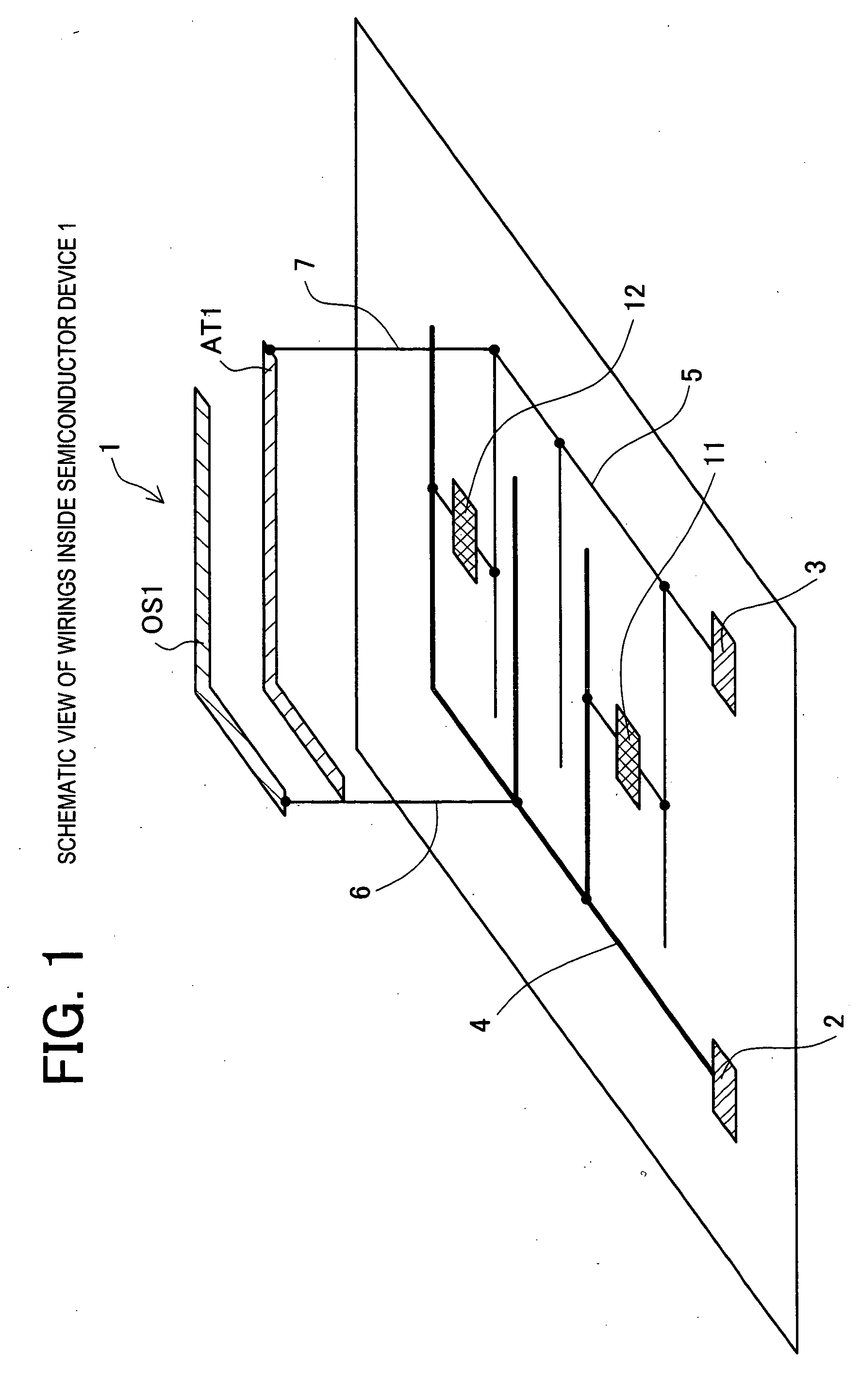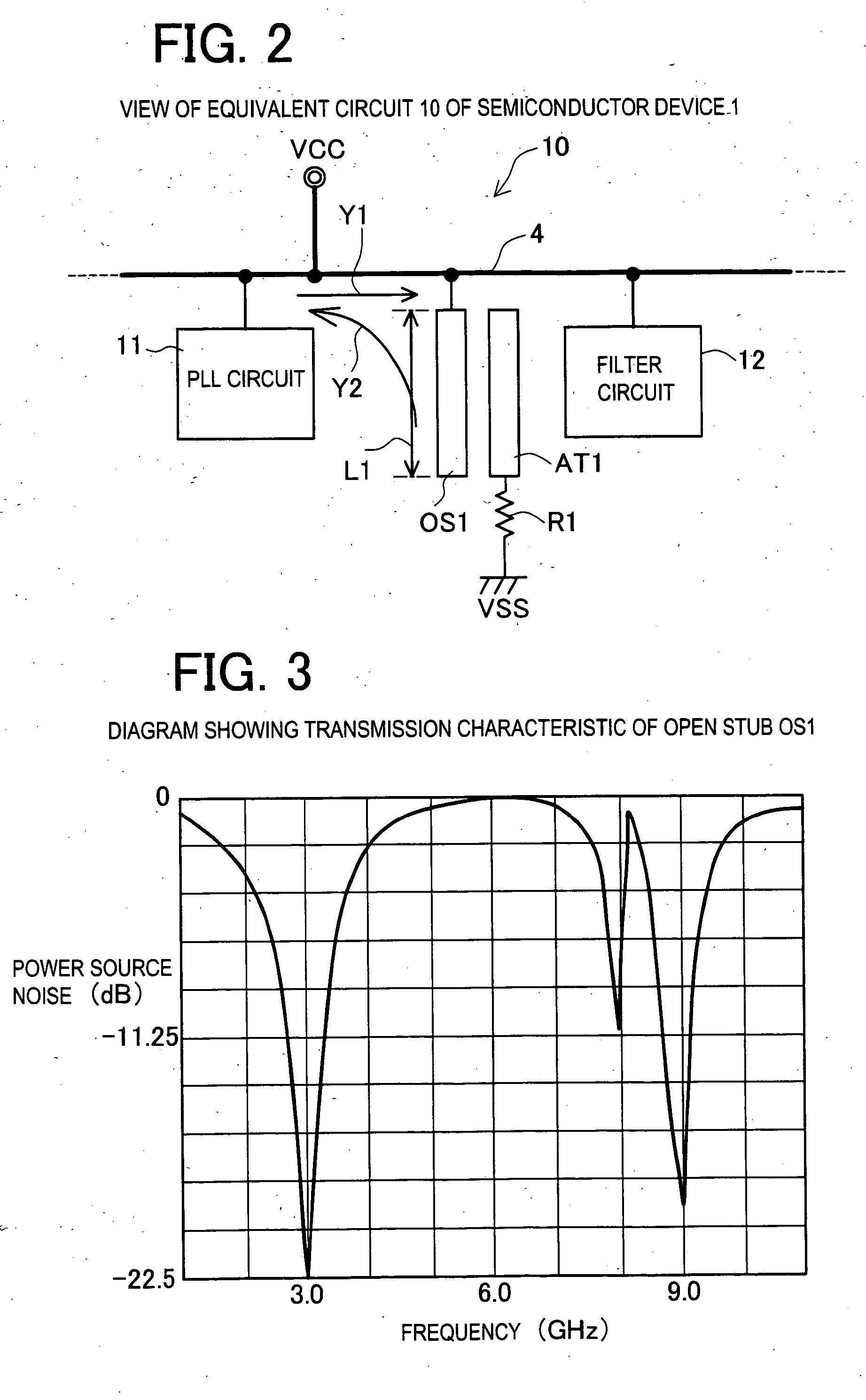Semiconductor device and adjusting method for semiconductor device
a technology of semiconductor devices and adjusting methods, which is applied in the direction of semiconductor/solid-state device details, line-transmission details, waveguide type devices, etc., can solve the problems of inability to prevent situations, inability to adjust center frequency cut by open stubs, and inability to stabilize the operation of semiconductor devices, so as to prevent noise propagation, reduce noise components, and prevent the effect of noise propagation
- Summary
- Abstract
- Description
- Claims
- Application Information
AI Technical Summary
Benefits of technology
Problems solved by technology
Method used
Image
Examples
first embodiment
[0042] According to the semiconductor device 1 of the first embodiment, as described in detail above, propagation of power source noises in the power source wiring between blocks inside the semiconductor device can be prevented by the open stub. Therefore, not only erroneous operations due to noise propagation between semiconductor devices but also erroneous operations due to noise propagation between block circuits inside the semiconductor device can be prevented. Therefore, noise cutting can be carried out pinpoint in smaller units, that is, at a level of noise cutting between blocks, and this more effectively prevents noises from propagating and prevents the semiconductor device from erroneously operating.
[0043] Furthermore, by providing the noise receiving part including resistor components, not only are the frequency components of noises reflected but also the noise components themselves are reduced by impedance. Namely, in comparison with the case where no noise receiving part...
second embodiment
[0044] the invention is described with reference to FIG. 4. The second embodiment is an embodiment in which a shield is provided inside the chip in the case where the open stub to be connected to the power source wiring is disposed inside the chip of the semiconductor device. A schematic view of the inside of a semiconductor device 1a relating to this embodiment is shown in FIG. 4. The semiconductor device 1a has a shield part 21 and a power source electrode part 22 in place of the noise receiving part AT1 described in the first embodiment. The shield part 21 has a wide area to cover the open stub OS1 so as to shield it from radio waves radiated from the open stub OS1. By forming the shield part 21 in the wiring layer just below the wiring layer including the open stub OS1 by the method for forming metal wiring, the shield part 21 is disposed adjacent to the open stub OS1. Furthermore, by forming the power source electrode part 22 in the wiring layer just below the wiring layer incl...
third embodiment
[0053] As described in detail above, according to the semiconductor device of the third embodiment, by disposing the open stub between the power source wiring of the input and output terminals of the semiconductor device and the external device, the basic wave component and odd-number harmonic components of noises can be prevented from leaking from the semiconductor device to the outside. Therefore, an apparatus itself that includes the semiconductor device can be prevented from erroneously operating. Furthermore, by forming the open stub so as to have a plurality of bends, it becomes possible that the maximum side length of a region required for installing the open stub can be reduced while maintaining the length corresponding to the ¼ wavelength at the predetermined center frequency of power source noises. Therefore, the degree of freedom in the form of the open stub installation location is increased, so that the situation in that the installation location cannot be obtained and ...
PUM
 Login to View More
Login to View More Abstract
Description
Claims
Application Information
 Login to View More
Login to View More - R&D
- Intellectual Property
- Life Sciences
- Materials
- Tech Scout
- Unparalleled Data Quality
- Higher Quality Content
- 60% Fewer Hallucinations
Browse by: Latest US Patents, China's latest patents, Technical Efficacy Thesaurus, Application Domain, Technology Topic, Popular Technical Reports.
© 2025 PatSnap. All rights reserved.Legal|Privacy policy|Modern Slavery Act Transparency Statement|Sitemap|About US| Contact US: help@patsnap.com



